Published May 6, 2019
Meet the College Professor Teaching 'Trek' to Millennials
Duke University professor Mohamed Noor's "Genetics, Evolution, Star Trek" course introduces college students to biology — and Star Trek
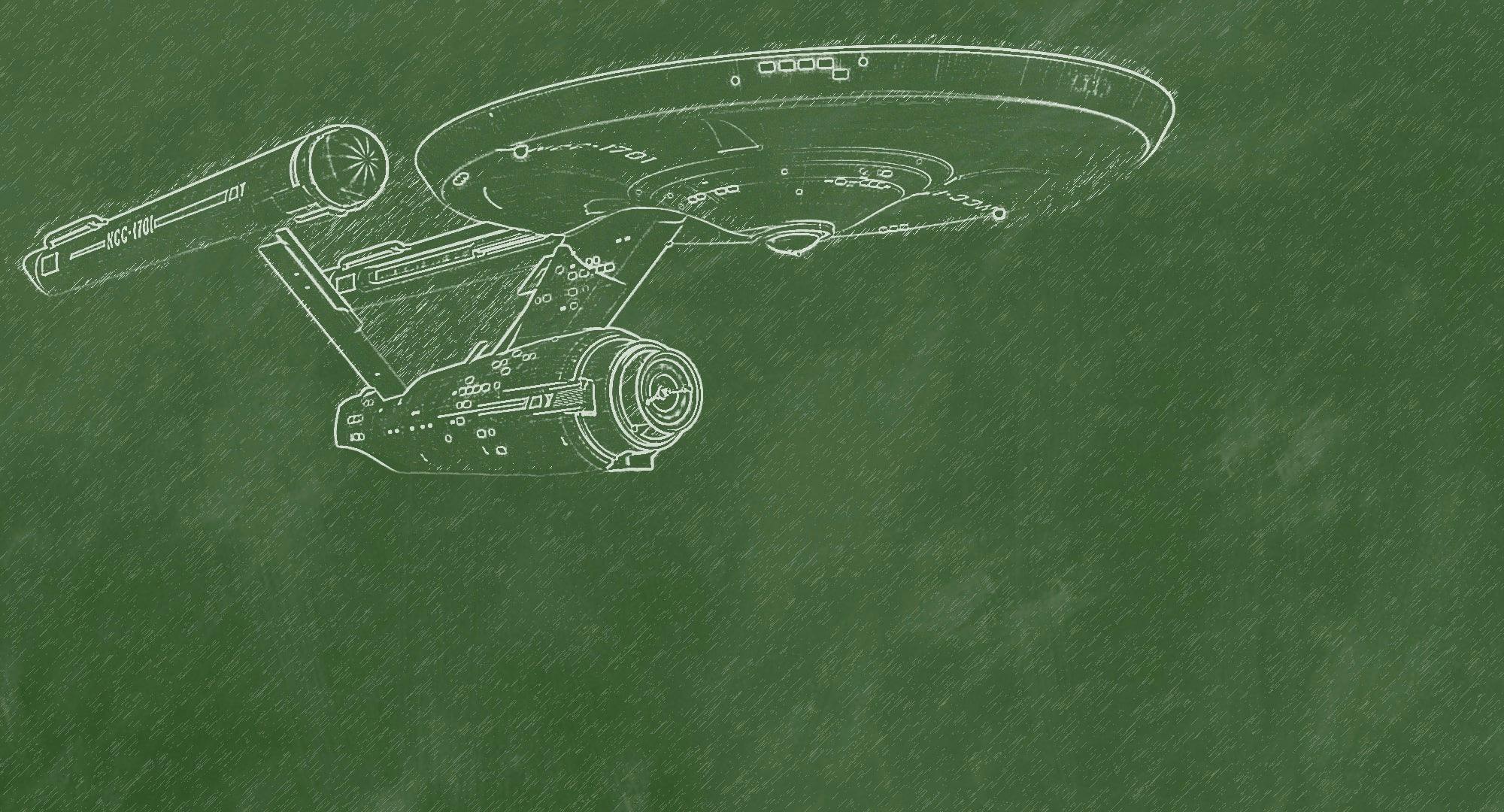
StarTrek.com
When Duke University freshman Jess Edelson went home for spring break, she finally joined in the family tradition: she sat down with her grandfather to watch Star Trek.
Though she grew up in a Trek-loving family, the franchise is just not as prevalent in Edelson's generation, she says during a phone interview. She knows it's an essential cultural phenomenon for sure, but had never really connected with the show. Now, and thanks to an atypical course she took at Duke, Edelson's finally caught the bug. Not only that, but she watches Trek with the critical eye one usually develops over years of fandom participation.
"I sat down with my family and we watched probably the most famous episode ever, "The Trouble with Tribbles." That's my grandfather's favorite episode," Edelson says. "I can no longer just sit and watch these episodes without pointing out things, [such as] whether the science was right or what ethical questions that episode is trying to address."
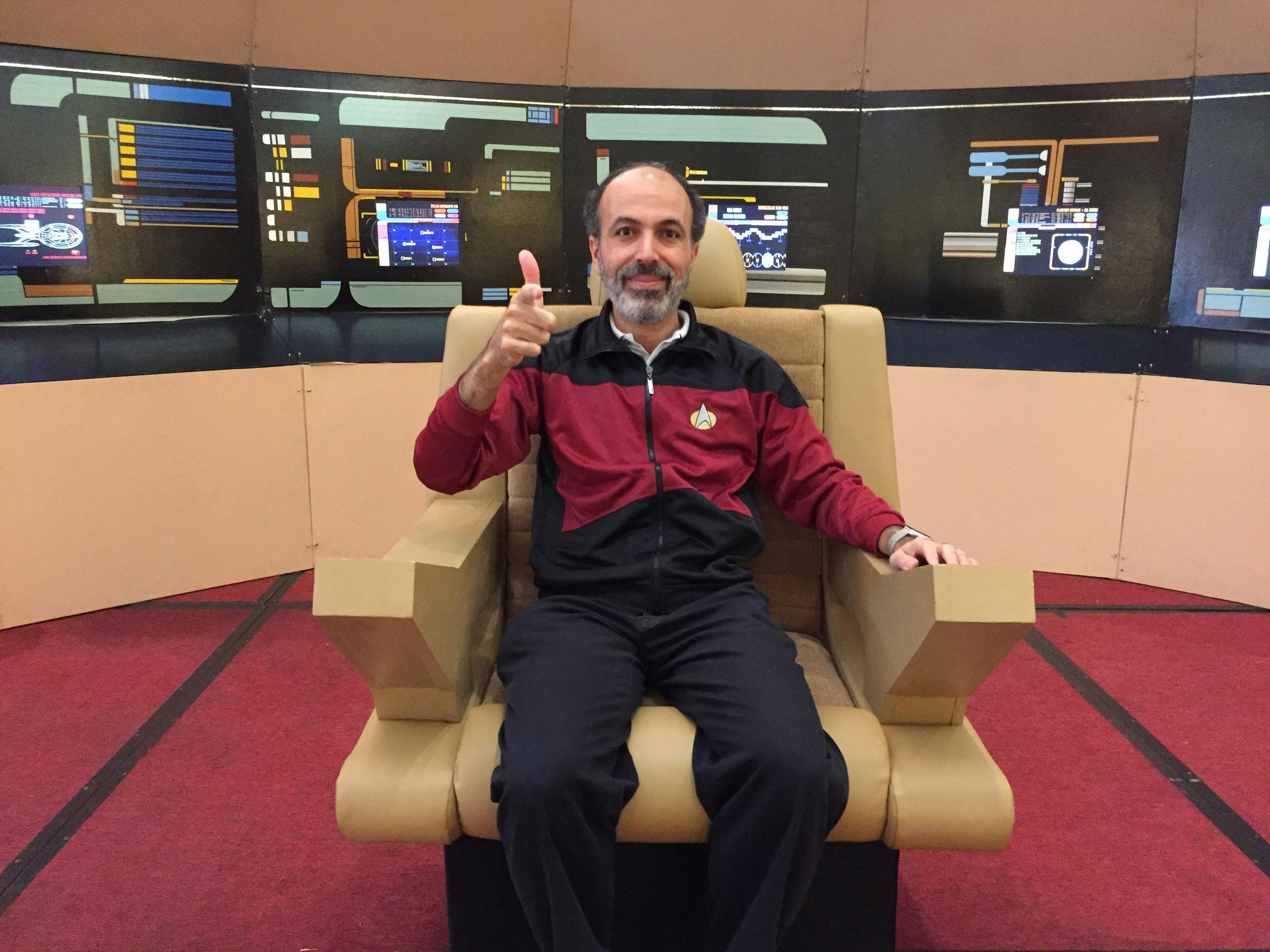
StarTrek.com
Edelson was one of 15 students in the spring 2019 section of Mohamed Noor's "Genetics, Evolution, Star Trek," a course that teaches evolutionary biology through Star Trek. Noor, who was previously the chair of Duke's biology department, will become dean of natural sciences at the university's Trinity College of Arts and Sciences in July. The professor has led sessions and sat on panels at cons such as Atlanta's DragonCon, and wrote Live Long and Evolve: What Star Trek Can Teach Us About Evolution, Genetics, and Life on Other Worlds, which he used as the textbook for "Genetics, Evolution, Star Trek."
"The objective isn't to teach Star Trek," Noor says. "The objective is to teach genetics, evolution and a little astrobiology, but using Star Trek as an entryway for it."
Noor's airy office at Duke reflects his dual passions of sci-fi and sci-fact. A Charles Darwin bobblehead shares desk space with a model of the original Enterprise. Years worth of biology journals line his shelves, while the walls are decorated with charts of starship sizes and a framed First Contact movie poster.
Noor can trace his love of Star Trek to a late '70s family trip to Miami, when he would have been six or seven. The Original Series episode "For the World is Hollow and I Have Touched the Sky" was on, and little Noor was intrigued. When he got home, Noor sought out Trek on a local station and was quickly hooked. Soon came the first few Trek movies, and The Next Generation premiered while he was in high school. From the late '70s to present day, Noor has followed every series.
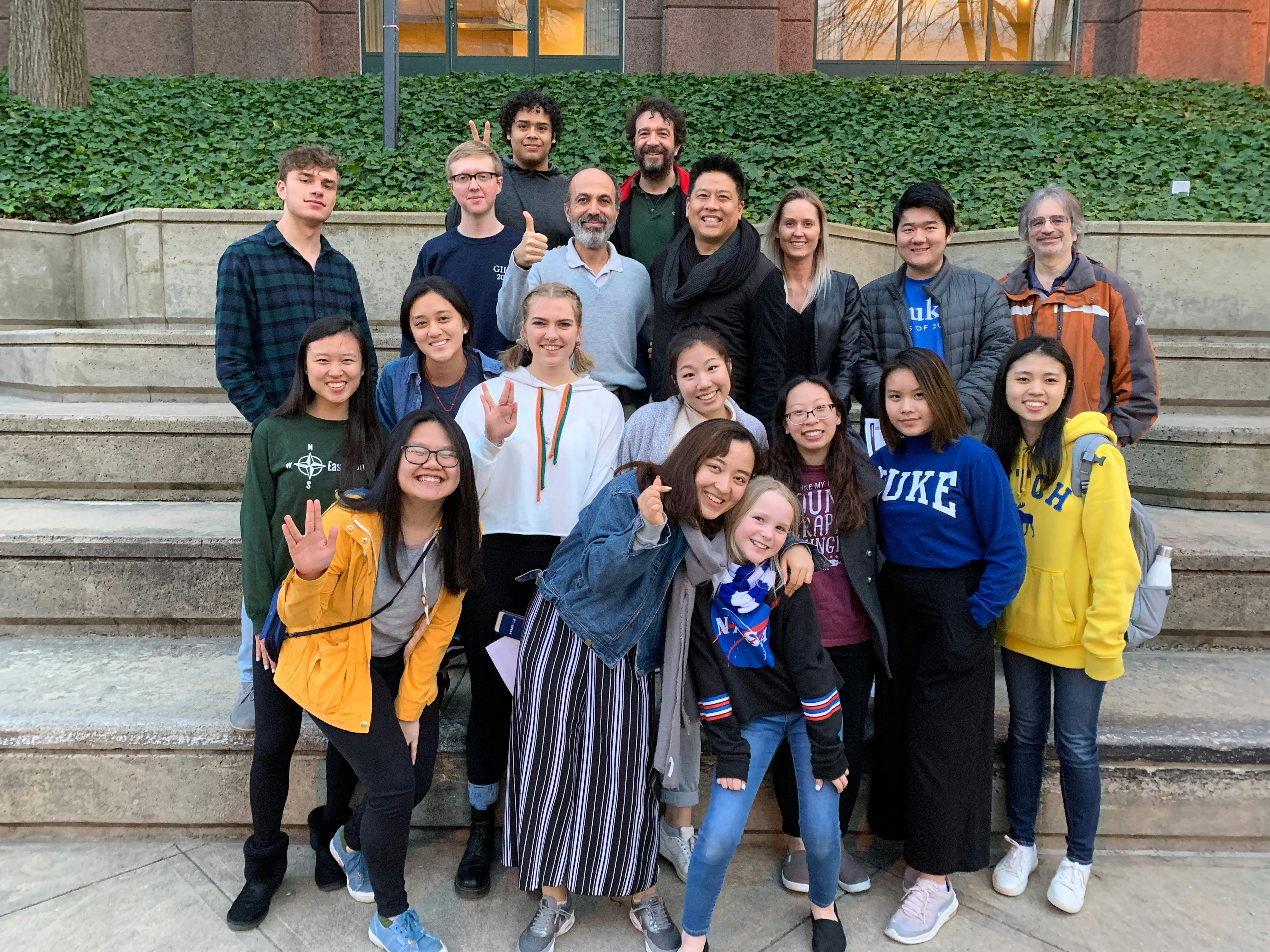
StarTrek.com
In contrast, the dozen-year gap between the end of Enterprise and the start of Discovery coincides almost exactly with the formative years of today's college freshmen. Some of them have seen the Kelvin timeline films, Noor notes, but many students he's spoken to have either seen very little Trek or none whatsoever. So while a science-via-Trek course made sense to Noor, he wondered if it would resonate with students born at or after the turn of the millennium.
"About half of the students [in the spring class] had never seen any kind of Star Trek," says Noor. "They still signed up for this class, so I'm impressed."
Every freshman is required to take a first-year seminar, Edelson points out, which includes the offering of "Genetics, Evolution, Star Trek". Aside from Edelson's curiosity about Trek, she jumped at the opportunity to be in a 15-student class with such an accomplished instructor. "Professor Noor is one of the most renowned professors here at Duke," Edelson says.
"Genetics, Evolution, Star Trek " met for 90 minutes on Tuesdays and Thursdays. The textbook was Noor's Live Long and Evolve, and the class spent its time learning biology through traditional class activities, but also by watching Star Trek. The final project was to write a Star Trek script using real biological concepts. Edelson's effort proposed how tribbles could reproduce asexually without being "born pregnant," as they're described in the show, while student Harry Wang filmed his script about likely mutations in humans living on Mars. Discovery came up in class, too, with Noor working the latest show into lessons as it addressed biological concepts such as mitochondrial DNA and recombination.
"It's one thing to learn about science in a textbook and to understand the nuances and how things actually work," says Edelson. "It's another thing to watch an episode and see how people are discussing the science."
"Genetics, Evolution, Star Trek" counts as a natural sciences credit, so for some students it may be one of two science courses Duke requires they take. As such, the science has to stick, and part of the trick is making the class fun. Classroom guests have included Duke alum Jayne Brook (Discovery's Admiral Cornwell) and Star Trek science consultant André Bormanis. (Voyager's Garrett Wang was even a guest at a separate class Noor co-taught).
"I can't believe there's a job like that out there — authenticating sci-fi theories [for television]," says student David Hallaron via phone. Like Edelson, he had no idea a job like Bormanis's even existed. Conversely, Noor knows that many of his students will pursue non-science majors. So with a successful actor like Brook, Noor okayed the students asking her about her career.
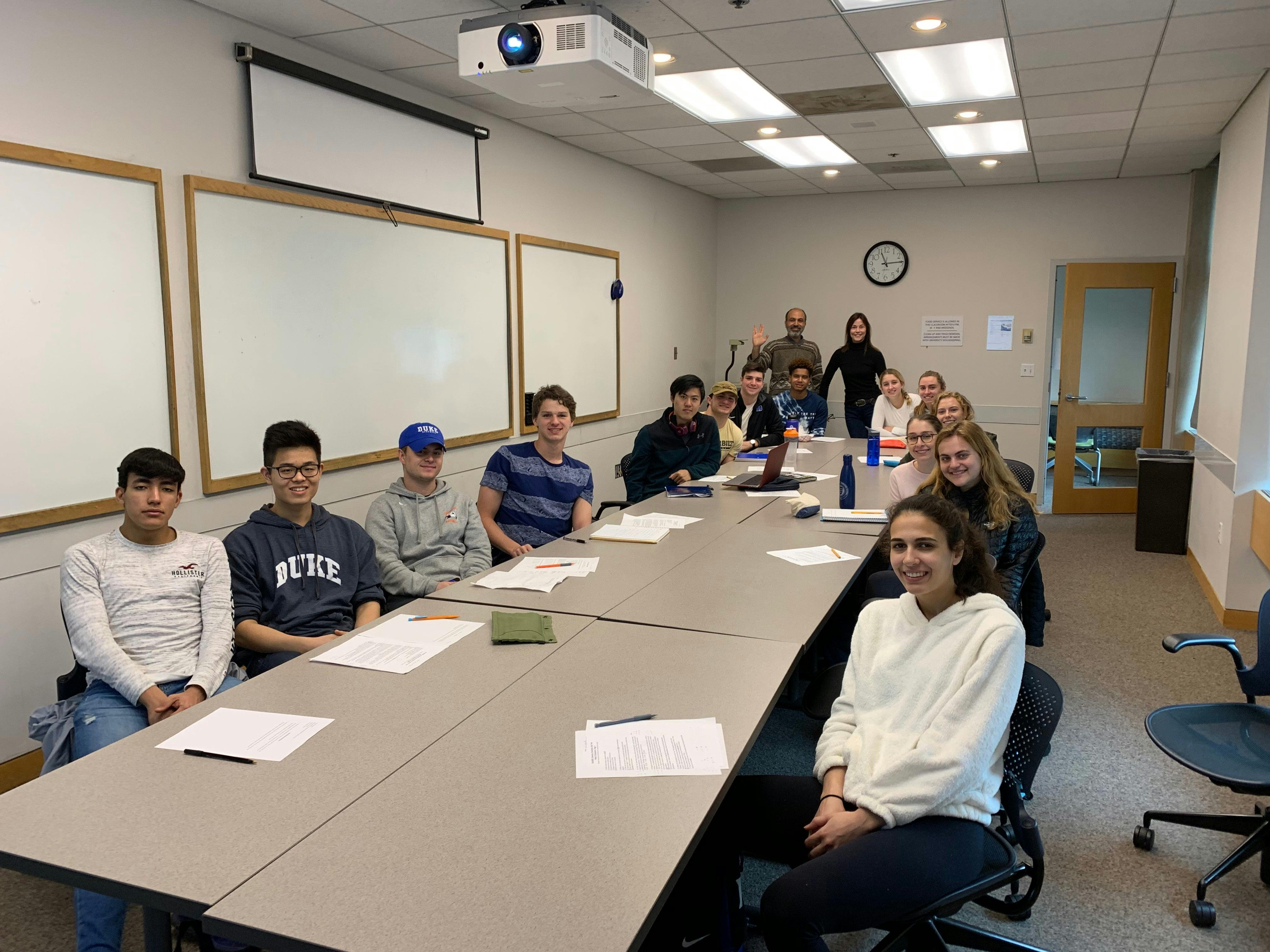
StarTrek.com
"She wasn't into acting at all until she came into Duke," says Hallaron. "I think she was on a pre-med or a biology kind of track coming in, but then she took an acting class and it was hard. She's one of those people that kind of had a natural talent for a lot of things, and acting wasn't one of them. She viewed that as a challenge and began taking more and more acting classes."
For Edelson, Noor's class has made her especially attuned to the ethical side of Trek. Like a parable, the show brings up broad questions about humanity's role in examining and classifying other forms of life — or even knowing how to classify what is and isn't life — in a way that can be applied to real science, real exploration, real discovery. And Edelson appreciates having Noor as her guide.
"You can tell he lives and breathes Star Trek and that he loves it," she says. "There is always a smile on his face."
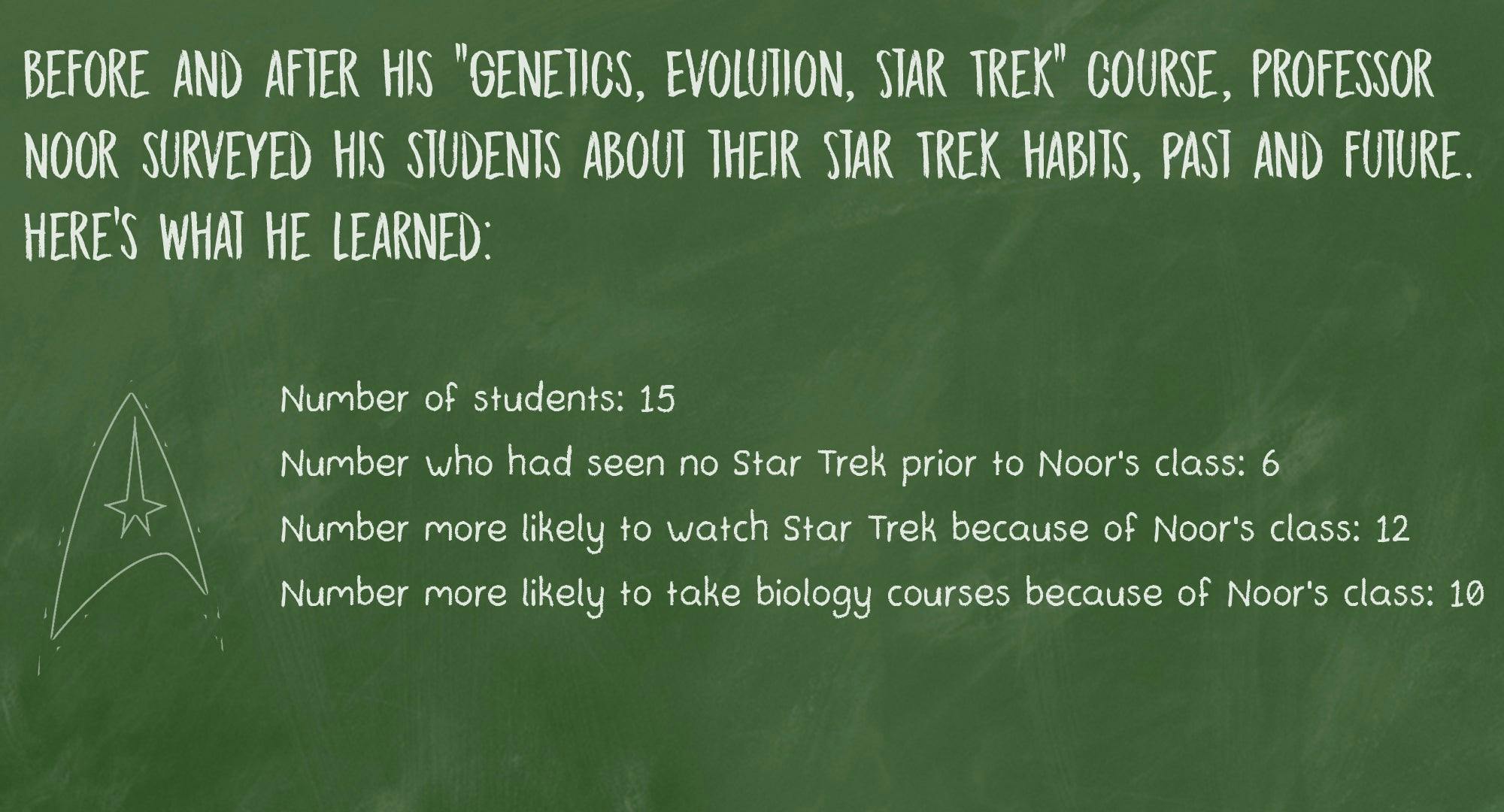
StarTrek.com
Corbie Hill (he/him) is a freelance journalist and editor who lives on three wooded acres in Pittsboro, NC, with his wife and two daughters. He has been watching Star Trek for as long as he can remember. Follow him on Twitter @afraidofthebear.

